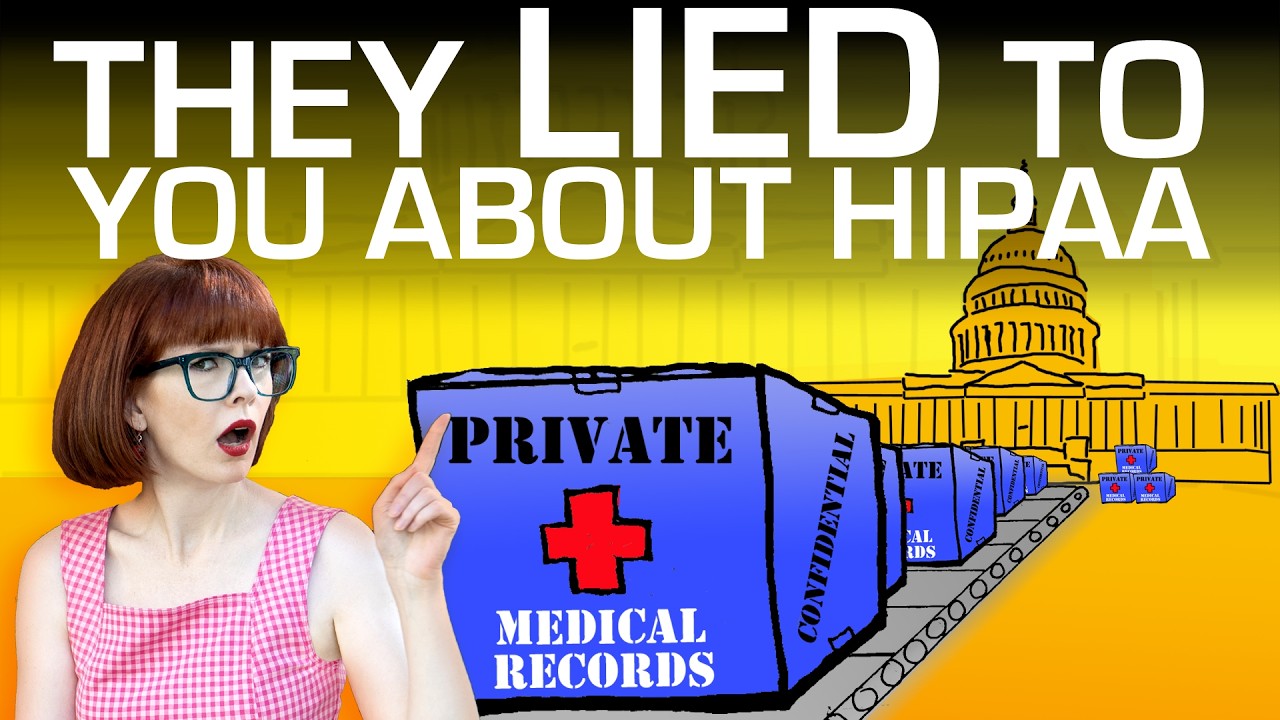It obviously protects against sharing data with e.g. your employer, but if a health provider chooses to make your data shareable, there are 2.2M authorized entities that can potentially access the data (identifiable health data).
Excerpt of the video description: Most people think that HIPAA means that their medical records are kept private. But what if I told you that HIPAA doesn’t protect your privacy at all?
This is our first video in a series about medical privacy, specifically looking at legislation that stripped individuals of the right to consent to medical data sharing.
We focus on what HIPAA actually is, how it came to allow our data to be shared without us even knowing, how we’ve been tricked into thinking we have privacy, and steps we can take to reclaim control of our medical data.
00:00 The State of Medical Privacy is a Mess 02:29 What is HIPAA 07:39 How Your Data is Shared 12:10 The Illusion of Privacy 14:48 What Can We Do 22:16 We Deserve Medical Privacy
We deserve privacy in our medical system. Our health information is sensitive, and we should be allowed to protect it. Even while we fight for better medical privacy, please always prioritize your health.
Special Thanks to: Twila Brase, Rob Frommer, and Keith Smith for chatting to us!
List of doctors who have opted out of the surveillance system: https://jointhewedge.com/
Twila’s website: https://www.cchfreedom.org/patient-toolbox/
Do you want to fight the system and lead a suit against medical data collection? Contact the Institute for Justice: https://ij.org/
Keith Smith’s Surgery Center: https://surgerycenterok.com/
Brought to you by NBTV team members: Lee Rennie, Cube Boy, Sam Ettaro, Will Sandoval and Naomi Brockwell
Edit: changed the title to something that isn’t misleading



From what I understand from the video and the regulation definition under Health Care Operations there are many ways for the provider to share the data without consent (page 2: https://www.hhs.gov/sites/default/files/ocr/privacy/hipaa/understanding/coveredentities/sharingfortpo.pdf).
Is that the first hurdle you were mentioning? I’m just trying to understand where is the restriction of the second hurdle if in 164.506 it says an entity can use the data:
Trying to understand the distinction add have another TIL moment, not aeguing against the comment
I mean to a degree this makes sense. It might very much be medically required to share such data.
How to, for example, prosecute a doctor for quackery if you cannot get access to the cases they worked on? So for oversight, someone overseeing it needs to be able to know drtaiks about the cases, too.
Hypothetically, they can ask for consent from patients, with some form that allows investigative agencies to access contact information of patients for such cases. I think there are other options other than sending it without consent and even the knowledge of the patients.
I guess personally I’d even be fine with not being asked, though now that you mention it, I’d like to at least know.
But then again, to some extend that’s how it works here. My insurance knows about everything, but I need to allow doctors to access or modify my file, and then only portions of it. Like my general doctor can do a lot of stuff, but obviously my dentist can only do dental and radiology stuff.